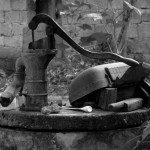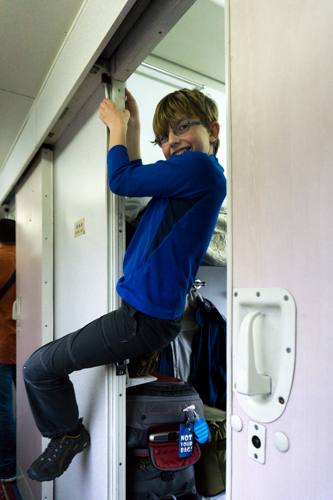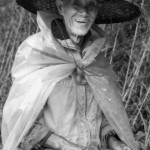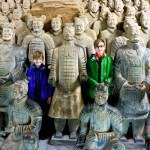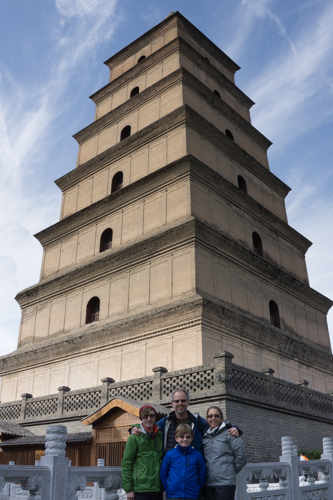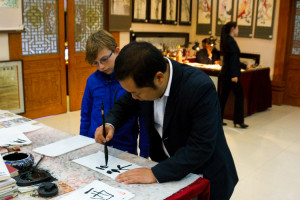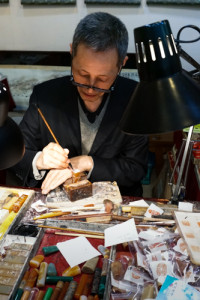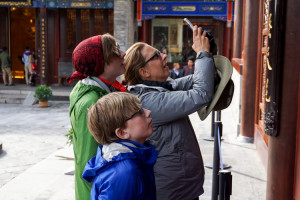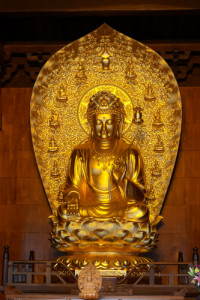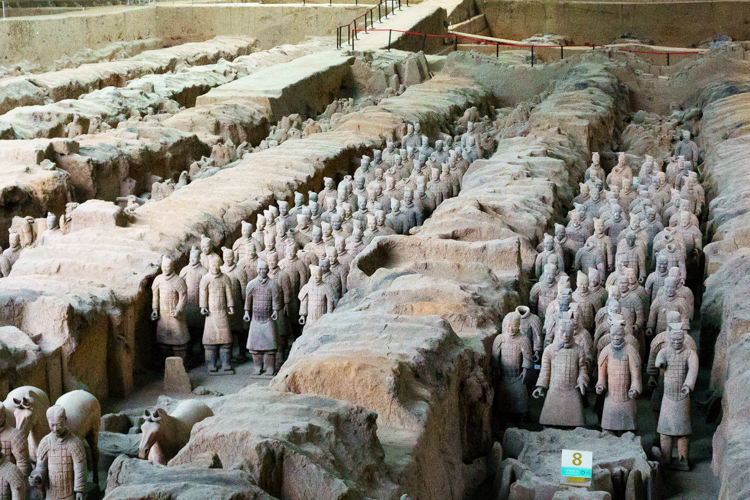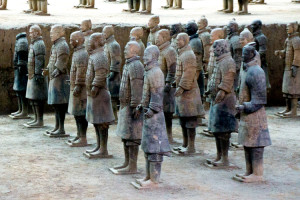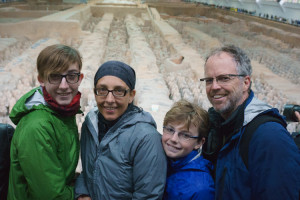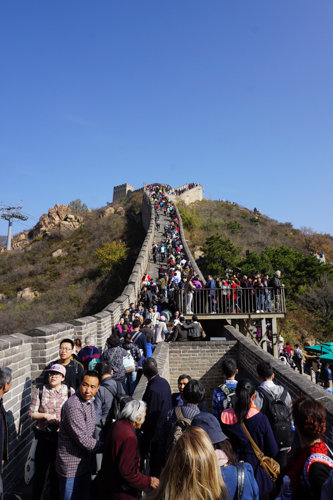China was an amazing experience, as I have written before. In addition to shooting quite a few photos I shot video on our Sony SLR camera. Thanks to the work of Guillem Mateo, an amazing video editor based in Barcelona, my footage yielded this short video of our time there.
Tag: china
A Few Days out of the Cities in the Relative Quiet of Guilin and Yangshuo China
As we move around the world with our kids we have tried to intersperse times in big cities with time in the rural areas of the countries we visit. In the case of China we went from the intensity of Beijing, to the less frenetic city of X’ian and finally after a 19 hour train ride arrived in Guilin. From there we boarded a boat on the Li river to Yangshuo. This is a beautiful area of China. In fact, the back of one of the bills features an ink drawing of some of the karst mountains, formed when limestone and dolomite is eroded.
The Guilin area is known for its ‘better air quality’ but in our experience this was only in contrast to how bad it was elsewhere. The photos all benefited from the “dehaze” filter in the photo processing software (Adobe Lightroom.) It was certainly better than in Beijing and even Xian especially during a late afternoon hike in a light rain.
We spent several days at the Giggling Tree Guest House, an old farmhouse converted into a guest house by a Dutch couple. Last August I was standing in the dusty bar at Distrikt during Burning Man talking to a French TV producer who worked for National Geographic and had been a traveling producer for the TV show The Amazing Race. I mentioned that we were headed to China and she said one of her favorite places in Asia was the Giggling Tree Guest House, so we added it to our list. It was, indeed, a special place.
Amongst other unique things, they had put together a series of “flip” picture books for a number of hikes and bike rides in the area. We spent several hours wandering in the nearby hills armed only with our camera and a spiral bound collection of pictures indicating where to turn. Above is a picture of Bryce holding one of the pages indicating a left turn up a steep stone path marked by an angled tree!
We wandered through several small villages at a pace that was much slower than our experiences elsewhere in China.
Traveling by Train Through China on Our Trip Around the World
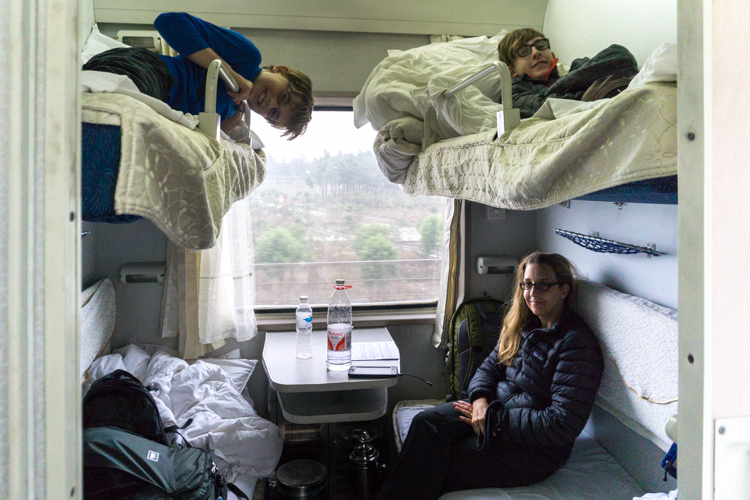 We decided to save money and travel through China by train on our around the world trip. In addition to costing less than internal flights, we replaced the hassle of airports with the adventure of train stations! In the extreme, this decision meant a transit time of 26 hours from X’ian to Gualin instead of three hours had we traveled by air (a one-and-a-half-hour flight plus one and a half hours at the Xian airport.)
We decided to save money and travel through China by train on our around the world trip. In addition to costing less than internal flights, we replaced the hassle of airports with the adventure of train stations! In the extreme, this decision meant a transit time of 26 hours from X’ian to Gualin instead of three hours had we traveled by air (a one-and-a-half-hour flight plus one and a half hours at the Xian airport.)
There are several classes of service on overnight trains in China. The highest class of service is a “soft sleeper” which is the way to go. Each compartment has four bunks (the two lower bunks serving as seats during the day.) As a family of four this was ideal. [This is a fairly good guide and description of the options. http://www.travelchinaguide.com/china-trains/soft-sleeper.htm] The train code (K,T,Z,D reveals whether a train has a soft sleeper option.
The compartment has an insulated coffee pot and at the end of each carriage is a hot water boiler the size of an upright coffin bolted to the wall. Whenever a passenger needs hot water for tea, coffee, or noodles, they walk to the boiler at the end of the carriage with the thermos. The water coming out of these contraptions is often 50 percent steam! Any concerns about the water harboring stomach ache inducing bacteria evaporates in the billowing steam and seeing the scald marks on the floor of the train.
Every Chinese person we talked to about our train trips told us, even if we only had two or three words in common between their English and our Chinese, that the food on the trains was “not good” and “price high.” So, like every other Chinese passenger we boarded the train with bags of food. In our case, oreo cookies (easy to find in China) and popcorn tub sized containers of instant noodle soup. We survived on this combination for breakfast, lunch, and dinner.
Just before we left China we donated several tubs of noodles to fellow travelers at a youth hostel in Beijing. It will be awhile before instant noodles are appealing again.
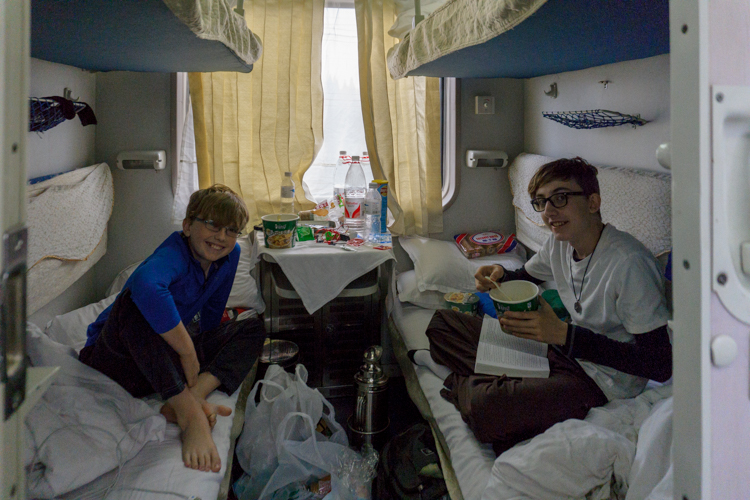
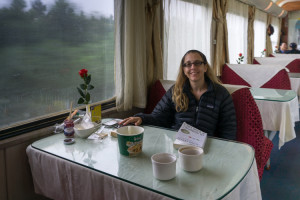
With only a few exceptions, every town we traveled through was surrounded by a ring of under construction apartment blocks. Mile after mile of multistory cinder and brick buildings, some complete but most between 25 and 80% finished. We would awaken in the morning, open the curtains and there they would be. The hollow dark holes that would (maybe) someday be apartments looking down on the passing train.
Operation “Opera No No”
As I was hauling our suitcases up to the overhead rack and the boys and Aleix were discussing bunk assignments, we were hit with a blast of militaristic Chinese music from a scratchy speaker above the window. As we settled in and waited for the train to get underway the music continued. We couldn’t understand it but the tone certainly sounded like the singer was encouraging us to be energetic and strong in pursuit of something. The sound was so scratchy that honestly I think even a fluent Chinese speaker would have had a tough time understanding the words.
This was about 7:00pm and you could see on everyone’s faces the growing concern that the music would be with us for the entirety of the 26-hour trip. Colin found the volume control and with a smile quickly turned it down to “zero.” Sadly, the knob just kept turning, after six or eight revolutions even Colin, often our optimist in these situations, had to admit it was having no effect.
Another five minutes passed and our hope that the train getting underway would stop the music hadn’t come to pass.
“Ok,” I said, “remember that cool leatherman tool we bought with the screwdriver that is TSA approved? And, that I debated buying because we probably wouldn’t use it. This is its moment. Colin, close the door, all of you face the door and get ready to stall if the conductor tries to open it.”
I dug around in the backpack and emerged with the tool.
As I climbed up onto the upper bunk and positioned myself to unscrew the offending speaker, Colin coined a phrase that has become our touchstone when we are somewhere loud. He cheered, “Operation Opera No No is underway!”
It took a fair bit of effort to unscrew the speaker cover with dust and grim falling on the lower bunks and across the table. At one point we heard the conductor moving down the corridor. I scrambled to put the partially unscrewed cover back in place. For those of you who are old enough, the whole scene had its comedic qualities reminded me of the frequent scenes in the TV show “Hogan’s Heroes” where Hogan and his crew would move quickly to block Sergeant Shultz from seeing the hidden trap door.
The conductor passed by and I went back to work. Inside was a half dozen wires but I was able to locate the poorly taped connection that was causing the static, and with a gentle tug, silenced the speaker. I screwed the cover back on and we enjoyed silence for the remaining 25 hours. Well, actually that isn’t quite true as every 20 or 30 minutes until late in the evening and starting again at 6:00 am the next morning a vendor would come down the aisle offering snacks, drinks, or trinkets at high enough volume to penetrate the compartment walls and doors.
Some of the People We Met On Our Travels With Our Kids Through China
As we hoped when we set off around the world with our kids, this trip is about the people we meet as much or more than the places we go. Traveling with two sons through China provides ample opportunity for conversations and interaction. Also, we elected to travel by train through China (rather than flying) and took the subway over taxis in Beijing, Shainghai, and Xian. These are photos of a few of the folks we met along the way.
Some of the Places I Visited in China as Part of our Trip Around the World
The Buddhist Temple
A few days ago we went to the Wild Goose Pagoda and learned about Buddhist history and their religion. On the tour we went to the different shrines and heard the monks chant. We learned that the Pagoda leaned to one side because they had an earthquake a long time ago and when they built it they made the foundation so that it could move but not fall all the way over. It was built during the Tang Dynasty. During the Tang Dynasty one of the emperors was Buddhist so the religion became very popular in China.
The best bit of the tour was the art gallery at the end. The guide taught us calligraphy and we got to do some, then a bamboo artist painted, guess what? Bamboo!
We got to keep that, and then we picked out chops of our zodiac animals and the master carved our English and Chinese names into them!
The Pagoda was full of culture and history and was amazing to see.
The Terracotta Warriors
Earlier that day we saw the Terracotta Warriors. It was interesting that the Emperor that built them built them out of fear, not ego. He built them so he could continue to rule in the afterlife. After the soldiers were built he buried the people who put the soldiers there alive so no one knew where they were. He also killed the engineers who discovered chrome plating so we had to rediscover it thousands of years later. When he was 13 years old he began construction on his tomb. A few years after he died a peasant revolt rushed his tomb and stole the weapons from it and then burned and destroyed the Terracotta Warriors. The first time they were found was when a farmer was digging a well and found an arm. The other farmers told him it wasn’t important but he put the pieces he found in a wheelbarrow and took them to officials in the town. They recognized how important his find was. Many years later he stopped being a farmer and spent his days at the museum signing books.
The Great wall
The same emperor that built the the Terra Cotta Army started the construction process of the Great Wall of China. Qin Shi Hungdi built the wall to defend the Chinese Empire from the Mongolian Nomads of the north. The Mongals were mounted soldiers who lived off the land though when they could not they reverted to stealing, burning, and pillaging the Northern Chinese villages. The Great Wall was also known as the great, or longest, grave yard. When workers died on the job they just buried them in the wall and built around them. Once it was finished they had a special system to signal the army; one signal fire meant 50 men, two signal fires meant 100, and so on. The Great Wall took over 500 years to finish building.
The wall in it of it self is not very high but most of it is built on mountains that were steep and treacherous. The mountains provided little fast escape for the soldiers but made it nigh impossible to scale, grapple, destroy, climb or, mount ladders on. When we went to the great wall the it was incredibly crowded even though we had requested not to go to crowded areas. When we asked the guide why we had come where she said because it was the most important part but she never told us why. The Great Wall, like the Terracotta Warriors, was built out of fear, fear of the Huns, rather than ego as many people thought it was.
